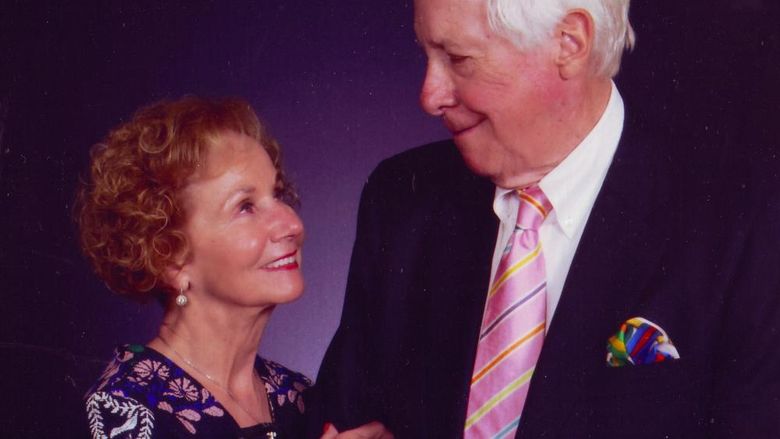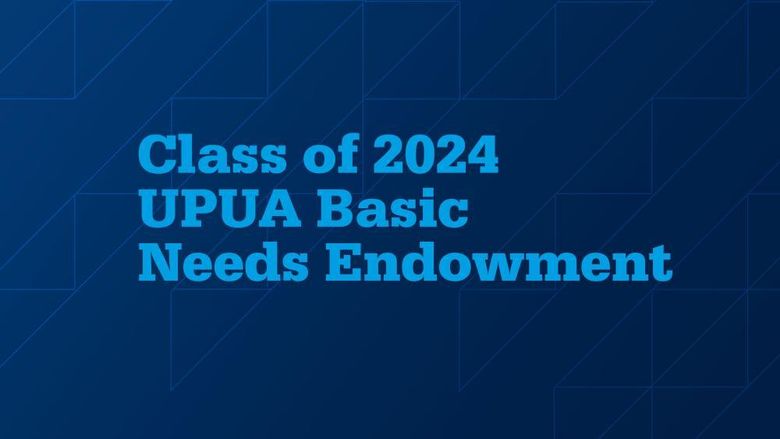
Jeff Slocum and Helene Zuber Slocum
SCHUYLKILL HAVEN, Pa. — “How does your brain work?” This is the question Helene Zuber Slocum, Penn State engineering class of 1985, and her husband, Jeff Slocum, believe is at the center of student success, and a question they hope Penn State Schuylkill students will be able to answer confidently after participating in the campus’s recently established Zuber Slocum Academic Success Program.
Funded with a generous gift from the Zuber Slocum family, the program focuses on new students enrolled in first-year seminar classes. Students explore how they learn best, develop study strategies and receive one-on-one coaching from peer academic coaches embedded in each of the first-year seminar classes.
Our belief is that education is the great equalizer. Access to education, and equally, access to success while learning.—Helene Zuber Slocum
The couple’s passion for academic success strategies first developed when their daughter Hadley, as a sophomore in high school, recognized that her learning style and her math teacher's visual teaching style weren't well aligned.
“Her teacher was energetic and demonstrative, using a whiteboard to complete example problems. But there was no lecture component of the class, and Hadley learns best through listening,” Zuber Slocum recalled. “With our support, she advocated to her teacher, saying, ‘Teach me as if I can’t see.’”
The result? Hadley thrived in the math class. And more than that, every student in the class improved their outcomes.
“Success happens when students understand the power they have to advocate for themselves and to know what they need to learn best,” Slocum reflected.
Darlene Young, instructor of mathematics and tutoring coordinator, and Paige Waddell, special programs specialist, manage the Zuber Slocum Academic Success Program on campus. After an initial launch in the spring semester with 13 students in one section of the first-year seminar, and a broader launch this fall with 177 students in eight sections of the class, the program already has produced impressive results.
“Students across the board are increasing their understanding of their best learning practices,” Waddell said. “Because our peer academic coaches get to know students as individuals, they can show them the specific mix of study skills that will help them most. We’re showing them the way to make the magic happen, and we’re helping them better understand themselves.”
In addition to the in-class component of the Zuber Slocum Academic Success Program, peer academic coaches lead workshops outside of class covering topics such as active and critical reading, concentration, goal-setting, time management and how to talk with instructors. Students are required to attend four workshops throughout the semester, and Waddell states that many students are electing to attend more than that.
As the program grows, Young and Waddell review learnings and make changes. For example, this semester students are required to meet with peer academic coaches twice and attend four workshops. Having seen positive critical outcomes from the one-on-one meetings, the requirements will shift in the spring semester, with students meeting with peer academic coaches three times and attending three workshops.
“How a student learns can differ from class to class and subject to subject,” Young said. “In these individual meetings, we can prescribe specific tactics that can help, even delving into things like when a student should wake up in the morning.”
Helping students here at Penn State Schuylkill was important to Zuber Slocum, who grew up in Frackville, Pennsylvania, a small town in Schuylkill County, and spent two years at the Schuylkill campus before completing her bachelor’s degree in chemical engineering at University Park.
“This is an important way to give back and help a new generation of students succeed,” she said.
Zuber Slocum’s commitment and dedication to Penn State extends well beyond this gift. She has served on the Penn State Schuylkill Advisory Board since 2010 and, along with Slocum, has contributed gifts in the past including the Jeffrey and Helene Zuber Slocum Student Emergency Fund and the Hadley and Jefferson Zuber Slocum Scholarship.
“Helene and Jeff are exemplary models of the Penn State spirit,” said Penn State Schuylkill Chancellor Patrick M. Jones. “Their vision for access to education and student success is well-aligned with Penn State’s mission to provide access to an affordable, high-quality education. We are incredibly grateful to have their support and partnership in improving our students’ academic success today and for years to come.”
With the record-breaking success of “A Greater Penn State for 21st Century Excellence,” which raised $2.2 billion from 2016 to 2022, philanthropy is helping to sustain the University’s mission of education, research and service to communities across the commonwealth and around the globe. Scholarships enable Penn State to open doors and welcome students from every background, support for transformative experiences allows students and faculty to fulfill their vast potential for leadership, and gifts toward discovery and excellence help serve and impact the world. To learn more about the impact of giving and the continuing need for support, please visit raise.psu.edu.




